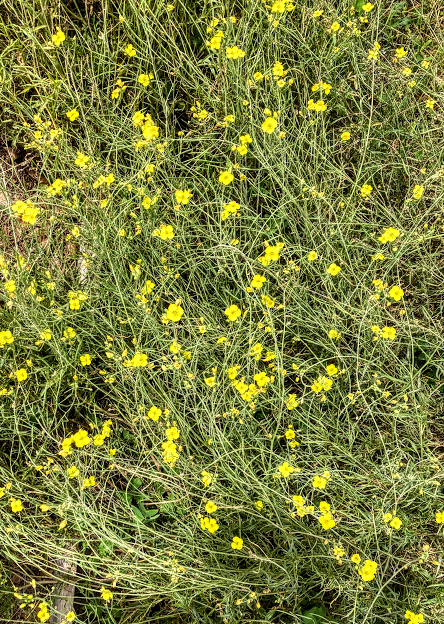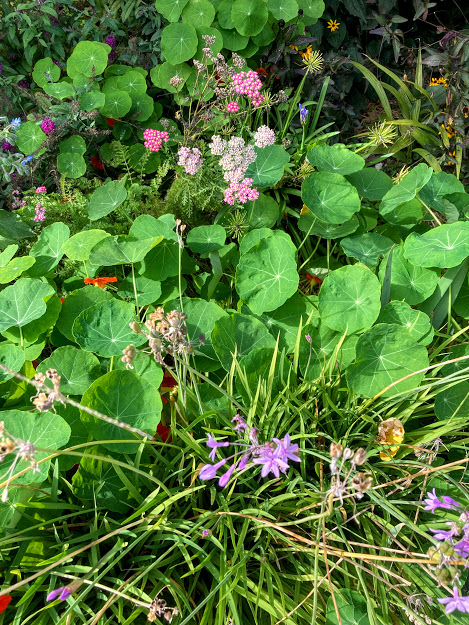Today we are trying to get a little bit back on schedule.......although still keeping our options open for a deviation or two. The focus of the morning is our reservation for visiting the Scuola di San Giorgio degli Schiavoni........also known as the Dalmatian School of SS. George and the Tryphon.......or for us, the home of the Vittore Carpaccio series of paintings for the Dalmatian confraternity which includes St. George and the Dragon.
The last time we were in Venice we went to the Accademia di Belle Arti to specifically visit the famous Dream of St. Ursala series of paintings. They were done about 10 years before the installation at at the Scuola di San Giorgio degli Schiavoni. We are long-time supporters of the work of Carpaccio.....just one of those things.
A BIT OF HISTORICAL BACKGROUND
Quite honestly, we do this for our own reference, as the details tend to fade over time! This is also to balance the overburden of photos in this blog......with some informational text!
Vittore Carpaccio was an Italian painter of the Venetian school, who studied under Gentile Bellini. He was born in 1465 and died in 1525.
Carpaccio’s activity in the Scuola probably dates to the period of 1501–1507/12, when he realized a cycle of paintings narrating the stories of the confraternity’s patron saints Jerome, George, and Tryphon. The original placement of the paintings is not known, nor is it clear whether the paintings were hung together in a single room or not. The total number of Carpaccio’s canvases is also uncertain, since a 1557 inventory lists far more paintings than those currently at the Scuola, whereas others in the room today are unexpectedly omitted. The surviving cycle has nine scenes: two paintings showing episodes from the Life of Christ, three from the Life of Saint Jerome, another three depicting Saint George, and one of Saint Tryphon. A tenth painting, the Madonna and Child Enthroned altarpiece, has been attributed to Vittore Carpaccio or his son Benedetto. The narrative cycle is admired by scholars and the public alike since it features some of the most famous masterpieces of Italian Renaissance painting, including Saint George and the Dragon and the Vision of Saint Augustine.
The paintings appear to have been inspired by a number of factors, including the Turkish-Venetian wars, to which the stories of Saint George and Jerome refer. The canvases dedicated to Saint Tryphon and the life of Christ evoke instead the virtues of personal sacrifice and charity generally embraced by all scuole. The unusual variety of themes and saints is best explained by the likely possibility that Carpaccio’s canvases were originally divided into four different micro-cycles that were displayed in two separate rooms on the upper floor of the Scuola. We should not, however, exclude the possibility that the paintings were originally distributed downstairs as well, possibly with the Christological scenes flanking the altar on the ground floor.
Several of the paintings have recently been painstakingly restored by Save Venice. This difference is dramatic.......and the restoration process is truly a modern scientific/artistic achievement.
In 2018, Save Venice, in collaboration with the Fondazione Musei Civici di Venezia and the National Gallery of Art, Washington D.C., funded a campaign of non-invasive studies of the painting cycle that included UV and Infrared photography to identify any problematic or damaged areas. Using these results, conservators have devised a plan for securing areas of flaking paint, methodically thinning and removing old varnishes and overpainting, and filling any areas of losses of the painted surface. The reverse sides of the canvases will be cleaned and re-tensioned, if necessary, for structural stability. Work began in September 2019 with the conservation of the Calling of Saint Matthew, followed by the Vision of Saint Augustine, which was completed in December 2020. The treatment of the Agony in the Garden and Saint George Slaying the Dragon began in 2021 and will be completed in 2022. The remaining five paintings in the cycle will be restored in 2022 and 2023.



























